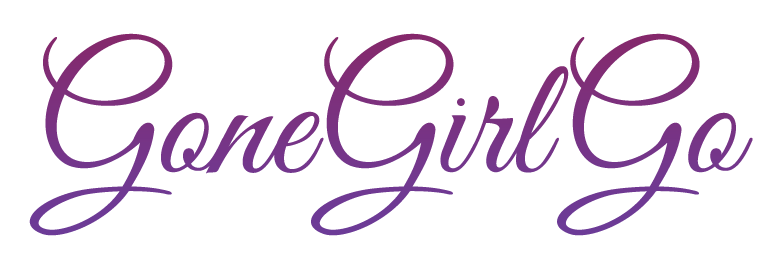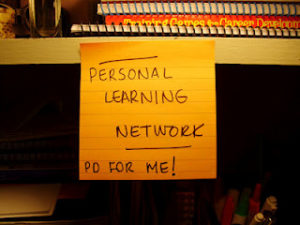I’m passionate about learning. Learning is important to me not for the sake of itself, the sake of acquiring knowledge, or the sake of being smarter. I strongly believe that learning is a must because when I stop learning, I stop growing and I stop changing. Learning is essential to my existence.
With that being said, if learning is essential, then I must remain teachable. It’s about maintaining an attitude that says, “There’s always room for me to grow.” It’s about seeking those teachable moments in every moment of my life. It’s about making a point to apply lessons learned. It’s about intentionally making meaning of my experiences. It’s about defining myself as a life-long learner.
John Maxwell wrote,
Teachability is not so much about competence and mental capacity as it is about attitude. It is the desire to listen, learn, and apply. It is the hunger to discover and grow. It is the willingness to learn, unlearn, and relearn.
I absolutely love this sentiment. What he’s saying is that remaining teachable is more than knowing or knowing how to do something. It’s having the desire, hunger, and willingness to set your heart on exploring, observing, analyzing, and persisting so that you can change.
SHAPING GONEGIRLGO LED ME TO THE IDEA THAT I HAD TO REMAIN TEACHABLE. SO IT BECAME ONE OF THE COMPONENTS OF THE CORE ACTION OF CHALLENGE ME TO GROW – WORK ON YOUR INNER SELF.
As GoneGirlGo emerged, I realized there was so much I didn’t know. I didn’t know anything about establishing an internet-based business. I was a novice blogger. My education and experience didn’t prepare me to be an entrepreneur. I had no experience in web design or html. Even though I faced these barriers, I had the desire, hunger, and willingness to explore, observe, analyze, and persist so that I could push forward my idea.
What helped me push forward GoneGirlGo? Many good things including my teachable spirit and these learning strategies:
- I had a Personal Learning Network.
- I was used to taking classes.
- I had access to someone who coached me through the process.
1. Why you need a Personal Learning Network
If you want to push forward your ideas, establish a PLN. Maybe you already have one, but never thought about. Having a PLN helps you stay current and connected, but most importantly it forces you to take responsibility for your own learning.
This post-it has been clinging to my desk for over a year and serves as a simple reminder to keep my PLN in the forefront of my mind. I remember writing this note when I read Jane Bozarth’s article in Learning Solutions Magazine, Nuts and Bolts: Building a Personal Learning Network (PLN) last year.
A PLN IS NOTHING NEW. IT’S A NETWORK OF FOLKS YOU HAVE ACCESS TO THAT IMPART THEIR KNOWLEDGE TO YOU. MOST OFTEN THIS NETWORK IS ONLINE.
During my bout of unemployment, I needed to upgrade my skills and soon realized the importance of building an online PLN through social networks. I found myself joining several LinkedIn groups related to training and development and e-learning. Occasionally, I posed questions to these groups and received useful responses. I learned a lot by reading discussion posts, and exploring links to websites. Because of these groups, I was exposed to industry leaders and organizations around the world. This experience caused me to adjust my thinking about how and when I could learn.
With GoneGirlGo, I shifted my PLN to include copywriting, content marketing, and entrepreneurship. I also added blogs of leaders in these industries like Michael Hyatt and Copyblogger. One of the biggest add-ons to my PLN was Twitter which I resisted using for 2 years. When my passion project becomes my full time work, I will definitely use Twitter a lot more.
BECAUSE OF MY PLN, I WAS ABLE TO REFINE THE FOCUS AND DIRECTION OF GONEGIRLGO.
Reflect on your PLN. Know the industry or area of expertise that you want to explore. Is there a voice out there that you want to listen to and learn from? Figure out a system to explore you PLN because it can be overwhelming at times. Share your PLN with others. Pose questions to your PLN. When you are ready, consider add-ons to enhance your initial PLN.
2. Why taking classes is important
Taking classes forces you to be responsible for learning in a formal, structured setting. Classes can be used to help you work out real life challenges. They provide access to research or other useful information that’s targeted to your area of interest. They provide an opportunity for you to build functional skills like writing, critical thinking, and problem solving.
Let me explain. Being in school and taking classes regularly puts me in a certain mode.
- I’m serious about taking responsibility to learn what I need and how to apply it to my life.
- I seek opportunities to use my coursework to help me in real-life situations. For example, for a class assignment, I developed an outline for Challenge Me to Grow. The benefit to me was the formal structure that the assignment gave me alleviated my processing of certain elements of CMTG.
- Whatever I download from the university library database, I upload to my diigo or dropbox account. I never know when I might need to refer back to it.
- I’m more comfortable with writing because I write a lot for my online classes. Since a big part of my business entails writing, being in this mode is certainly critical.
I’M NOT SUGGESTING THAT YOU ENROLL IN SCHOOL TO PUSH FORWARD YOUR IDEA. WHAT I AM SUGGESTING IS THAT POSSIBLY TAKING CLASSES CAN BOOST YOUR TEACHABILITY LEVEL.
A cool thing about living in the digital age is that online classes are being offered all over the internet, and in a variety of formats. Some cost and some are free.
I found udemy.com recently and I immediately added to my diigo account. It offers courses from leading experts on a variety of topics in education, business, health/fitness, the arts, language etc.
A few months ago, edX announced that Harvard and M.I.T would offer free online courses (massive open online courses or MOOC to anyone). Since then, other Berkeley has joined this network. The other day NPR did a story on University of the People which is a free online university available to people around the world.
Video tutorials are all over the web. Just google “How to create a WordPress website” and I bet you there’ll be more than enough tutorials that pop up in the search results. YouTube is a good place to start. I like lynda.com for their quality videos that teach you how to use certain software. You can take a certain number of courses up to point. To access them all, you have to pay a small fee.
Get it? If you want to push forward your ideas, boost your Teachability level by taking a class. It doesn’t have to be anything long term or require too much of your time. Search the internet for free classes on topics that you need to learn. Take advantage of the formal structure that classes offer to help you solve your real life situations.
3. Why you need a coach
A coach can guide you through a learning process, save you time, and lessen your frustration and confusion. Here’s how this learning strategy worked for me.
Setting up my website was a daunting task. As much as I wanted to have one, I was afraid of the process. My fear came from an ill-fated attempt to create a website a couple of years ago. I abandoned this project for a number of reasons. I couldn’t figure out how to use the web host’s funky web builder program. I was clueless about how to write content for the web. And I really didn’t have a clear message to share.
With GoneGirlGo, I renewed my commitment to create a website. I had a better handle on my ideas. I had a brand and a niche market that I wanted to cater to. So I thought, piece of cake.
Not!
I struggled creating the website initially. I wanted it to be all these things. I wanted it to look a certain way. I wanted it to do so much. I feel sorry for the person who worked with me on the initial design. I kept asking her to change this, add that, move this, and link that.
Fortunately, I began to follow Matt Rudman, a certified coach, writer and new media professional. I met him at a Cleveland Coach Federation event and soon after joined his weekly social media calls. He covered topics that sparked my curiosity about how to launch GoneGirlGo over the internet. I will admit that I was fearful about securing his services because of the cost, but after reading one of his blog articles, I was convinced that I needed his help.
In 4 to 5 sessions over the phone, he coached me through making sense of what I was doing and ultimately building the website. His questions, suggestions, and feedback were just what I needed. I was like a sponge soaking up his every word. Nothing compared to this one-on-one attention, especially when it came to learning something new. I’m glad that I sought help. Securing a coach was one of the best decisions that I could have made.
BY THE WAY, I’M STILL LEARNING HOW TO USE WORDPRESS, HOW TO EFFECTIVELY WRITE FOR THE WEB, AND HOW TO BUILD A BUSINESS, BUT I’M SATISFIED WITH MY PROGRESS.
If you are working on a project and you don’t feel great about how it’s progressing, consider working with a coach. If you’re concerned about their fees, work out some type of arrangement, if possible. Just don’t be afraid to inquire. Seek help from a friend or colleague.
Last thing.
If you have an idea that you want to push forward, but you are not feeling capable, consider how teachable you are. How much desire, hunger, and willingness do you have to explore, observe, analyze, and persist? How would you rate your Teachability level on a scale of 1 to 5 with 1 being the lowest and 5 being the highest? What inner work do you need to do to remain teachable?
I understand that remaining teachable can apply to so many aspects of your life. My hope is that you apply the core theme of this post to every aspect of your life.
TO REMAIN TEACHABLE HAVE THE DESIRE, HUNGER, AND WILLINGNESS TO LEARN, GROW, AND CHANGE.
Peace
Look for the September Challenge Me to Grow Resource. It will help you reflect on your Teachability level and help you make some decisions about what you need to do to learn, grow, and change.


